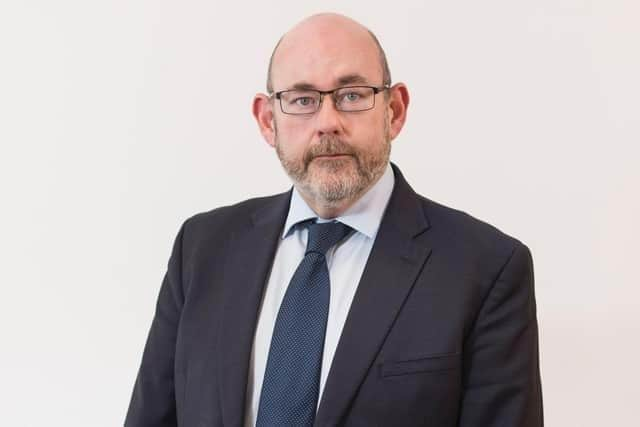Herts public health chief tells UK Covid-19 Inquiry he had to watch TV for updates during pandemic
and live on Freeview channel 276
A lack of communication from government meant that public heath chiefs would tune-in to TV briefings to get the latest information on the pandemic, Prof Jim McManus has told the Covid-19 UK Inquiry.
Hertfordshire director of public health Prof McManus was giving evidence to the Inquiry on Wednesday (July 5), in his role as president of the Association of Directors of Public Heath.
Advertisement
Hide AdAdvertisement
Hide AdHe told the Inquiry that the severity of this virus had not been anticipated in the early stages – and that he did not believe the plans were sufficient nationally.


Outlining the difficulties in dealing with central government he pointed to a ‘top down’ approach and lack of communication.
And he said it was often apparent that the government departments they were dealing with had not read their own guidance on the role of directors of public heath,
He pointed to the setting-up of ‘parallel systems’, even though there was a local capability to set up, for example, ‘test and trace’.
Advertisement
Hide AdAdvertisement
Hide AdAnd he said there were times when a lack of response or communication meant they were finding out information at the same time as the public, in the 5pm tv bulletins.
He also suggested that, at times, there had been a lack of understanding of what local authorities were capable of.
However he did say that communications between directors of public health and chief medical officer Chris Whitty had been ‘exemplary’.
And he did accept that as the pandemic progressed communication became much better, although he said there were still some departments who did not understand what they did.
Advertisement
Hide AdAdvertisement
Hide AdDuring the hour-long evidence session, Prof McManus was asked to outline the role of public health – which is now based within higher tier authorities, such as county councils.
The role includes a wide range of health protection and health improvement functions – including drug and alcohol, tobacco, suicide prevention and sexual health, as well as outbreak management plans, for infectious diseases such as measles .
Asked about budgets, he said allocations to local authorities had decreased in recent years – with some areas of greater deprivation faring worst for funding per head.
And he later suggested that emergency preparedness could have been better had cuts and the impact of austerity not have happened.
Advertisement
Hide AdAdvertisement
Hide AdProf McManus said that the national plan had been unclear – and seemed to prepare for flu, when a coronavirus would have been a plausible scenario.
And he suggested that in preparation, there was a need to do more to address health inequalities.
He said this was because those people with least access to health services and are least well able to deal with the multiple impacts of it.
And he said they were often most vulnerable for protective measures – such as having manual roles where they have to continue to have contact with the public.
Advertisement
Hide AdAdvertisement
Hide AdIn written evidence, highlighted to the Inquiry, it was said that Prof McManus had recommended to the Inquiry more flexibility was needed in the planning and risk assessment process to respond to the different types of viruses and the range of scenarios.
And he was also said to have suggested that the role of directors of public health should be clarified and strengthened.